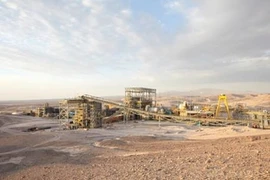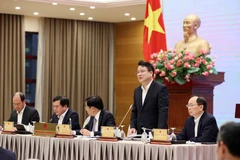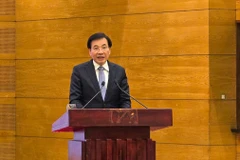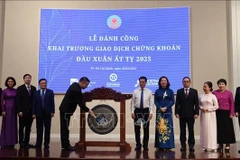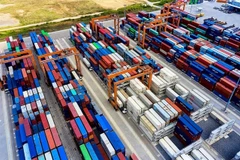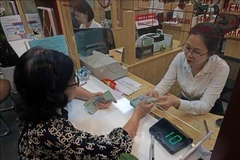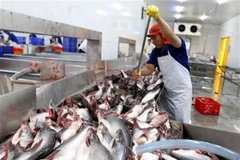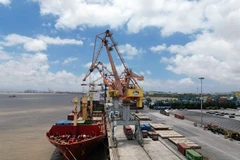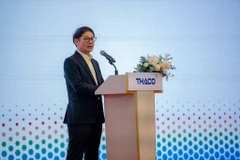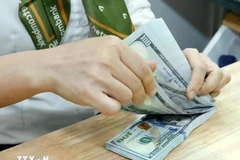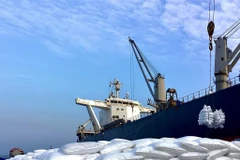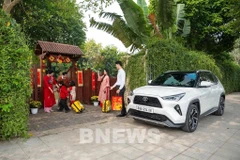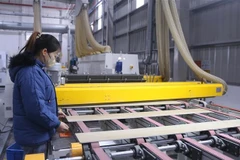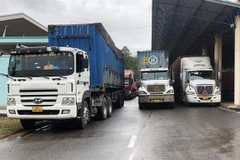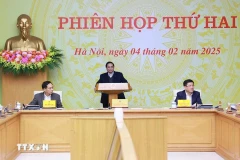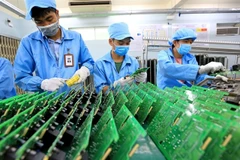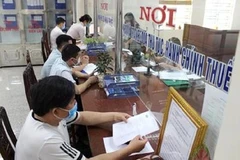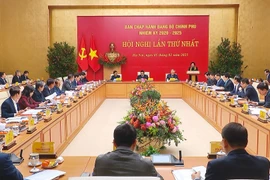The research on transparency compliance lamented inaccuratefinancial disclosures, unreliable reports on the true mine reserves throughoutthe country, withheld information regarding the development of and adjustmentsmade to mining planning – especially at local levels. Most of all, the level oftransparency regarding the mining sector’s social and environmentalresponsibilities for the community and the public is sorely lacking, the studyfound.
The number of mining companies claiming they had to pay"unofficial fees" (which amounted to 2 percent of their revenues) was12 percent higher than in other sectors, and it should be noted that thesemining companies are usually far bigger.
“Most mining companies post bleak revenues, but the paradoxis that in our survey, they also mostly said they are planning to expandproduction in the next two years,” Nguyen Minh Duc from the VCCI’s legaldepartment, said.
The report also suggests that private companies with closeties to State agencies may get first-hand information that should be madepublic as soon as possible, such as bidding notices, new ore discoveries,changes in planning, making for unfair competition.
The findings were presented at a workshop in Hanoi held byVCCI and members of the Vietnam Mining Coalition.
The workshop was organised against the backdrop of heatedpublic debate over recent mining-related discoveries, such as massive illegal"sand drain" from Vietnam to Singapore or threats made against aprovincial leader when he ordered a halt to sand mining operations.
According to Ministry of Finance data, natural resourcestaxes collected from the mining sector (excluding oil) account for a meagre0.9-1.1 percent of the State budget revenues, which many provinces said was noteven enough to cover the cost of mining activity management.
Le Ai Thu, Chairman of the Vietnam Economics Geology Association urged a change in thecurrent taxing scheme. Instead of collecting natural resources andenvironmental tax from companies before they even start mining, the collectionshould be done after they have sold their products and the price has beenidentified. “This will leave them with more financial means to invest andupgrade technology, to dig deeper, extracting the ’poorer’ ores instead of justpicking the rich ores, which is actually more wasteful,” he argued.
Assoc. Prof. Trinh Thi Kim Ngoc, former head of thehumanities and culture faculty at Vietnam Academy of Social Sciences, however,focused on the lives of mining area residents. As is often the case, mineraldeposits are concentrated largely in the mountainous uplands of Vietnam, withtheir rich biodiversity but poor and vulnerable population. With the pollutionfrom mining activities and influx of workers, “people’s lives there will beheavily affected during the mining operations, and long after those operationshave ended, resulting in diminishing quality of human resources,” Ngoc said.“Thus, making all information publicly available will help civil societymonitor and keep mining in check,” she added.
Lai Hong Thanh, Deputy Director of the General Department ofGeology and Minerals, said legislation that came into effect earlier this yearhad remedied many long-standing issues, showing that a receptive attitude on the authorities’ part toaddress complaints and criticism by experts in the field, such aspublic information on enterprise performance of their social responsibilities,the level of public information on natural resources with relation to its‘national secret,’ clearer bidding processes or transparency in licencesgranting, among others.
Many attempts over the last decade have been made to pushfor Vietnam’s participation in the Extractive Industries TransparencyInitiative – a global standard to promote openness and accountability inmanagement of extractive resources. But the efforts have not been fruitful,despite rampant and damaging violations in the mining sector, and the countryis lagging behind other ASEAN countries in this regard.
Experts in the field are calling formore commitment by the Vietnamese Government to reforms in the miningsector towards transparency and sustainable development, given its dismal placein international transparency rankings. In 2013, Natural Resource GovernanceInstitute rated transparency in Vietnam’s mining sector at 41th place in 58countries assessed.
In Vietnam, according to the constitution, natural resources“belong to the people,” with the State acting as the owners’ representative tomanage the resources; companies are the owners’ representatives for exploitingthese resources, hence it’s natural that the State and the enterprisesdivulging information to the people, an idea experts at the workshopunanimously agreed upon.-VNA

